The Western Canada Indigenous Conference: Fostering Traditional Indigenous Healing and Spiritual Practices
Presented by
Cynthia Wesley-Esquimaux, Ph.D.
and Denise Findlay, M,ED., CPCC, ACC
and Varleisha D. Lyons, Ph.D, OTD, OTR/L
and Suzanne Methot, BA., B.Ed.
and Shanelle Brillon Bath
and Lyndon J Linklater
Monday, May 12, 2025 – Wednesday, May 14, 2025
|
Saskatoon, sk
Download Brochure (.PDF)
Date & Location
Monday, May 12, 2025 – Wednesday, May 14, 2025
8:30am – 4:00pm
Park Town Hotel
924 Spadina Crescent E
Saskatoon, SK S7K 3H5


Live In-Person Conference
- Complimentary tea, coffee and assorted pastries
- On-site exhibitors
Please note, in-person registration does not include access to the live stream or recorded footage.
Live Stream from Home
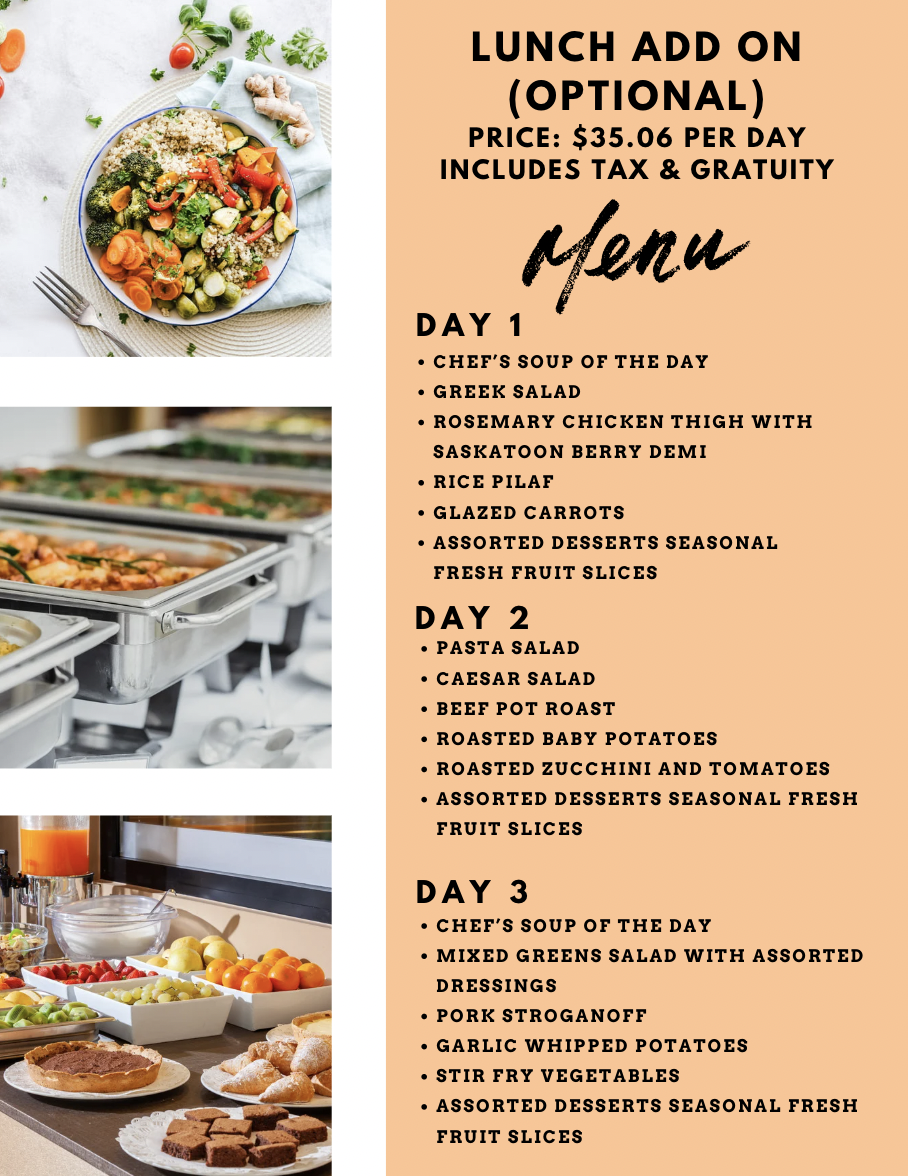
Must pre-buy during registration, not available at the door. Individuals with strict dietary needs or preferences can pre-order lunch off the menu through the hotel restaurant. Lunch buffets are non-refundable, no refund or credit will be granted under any circumstance.
Who Should Attend
Education and Clinical Professionals: K–12 Classroom Teachers, School Counsellors/Psychologists, Learning Assistance/ Resource Teachers, School Administrators, School Paraprofessionals including Special Education Assistants, Classroom Assistants and Childcare Workers. All other professionals who support students including but not limited to: Nurses, Social Workers, Psychologists, Clinical Counsellors, Family Therapists, Occupational Therapists, Speech Language Pathologists, Addiction Counsellors, Youth Workers, Mental Health Workers, Probation Officers, and Early Childhood Educators.
Day One – May 12, 2025
8:30am - 4:00pm May 12, 2025
COURSE DESCRIPTION
This one-day workshop, facilitated by Cynthia Wesley-Esquimaux, will focus on the integration of traditional Indigenous healing and spiritual practices within mental health and educational frameworks. Designed for professionals working with children, adolescents, young adults, families, and communities, it will offer practical tools and culturally grounded insights that can be applied in clinical, educational, or community settings.
Participants will explore strategies for supporting cultural revitalization and community healing, with a particular emphasis on fostering sustainable, Indigenized practices. The workshop will provide opportunities for deep engagement with Indigenous healing traditions, encouraging reflection on both personal and community experiences. Through collaborative discussions and activities, attendees will develop actionable strategies for revitalizing and integrating traditional spiritual practices into contemporary mental health and educational approaches.
Whether you work with individuals, families, or larger community groups, this session will equip you with practical knowledge to enrich your work and support the healing and resilience of Indigenous communities.
45 minute session with Lyndon J Linklater 10:45am – 11:30am.
Lyndon J Linklater is a traditional knowledge keeper and storyteller. He has an educational background in Indian Social Work, Indian Studies and some law.
He is a citizen of the Thunderchild First Nation (Plains Cree) in Treaty 6 and has roots in Couchiching First Nation (Fort Francis, Ontario) in Treaty 3.
Presently, Lyndon shares work with the Remai Modern Art Museum in Saskatoon as their Indigenous Relations Advisor providing advice to their board and staff and delivering cultural programming.
He is the longest serving member of the Office of the Treaty Commissioner’s Speakers’ Bureau, since he was appointed in 2000. Over the years, he has spoken to tens of thousands of people, delivering awareness and enlightenment on Treaty and First Nation worldview.
He is a powerful story teller that utilizes First Nation teachings that involve knowledge of ceremonies and mixes humour to deliver a poignant message
Show more
LEARNING OBJECTIVES
- To unpack the foundational elements of traditional Indigenous healing and spiritual practices.
- To explore how decolonization and Indigenization can reshape relationships with community members, allies, and supporters.
- To promote dialogue around integrating traditional practices into current mental health and educational frameworks.
- To explore leadership models grounded in Indigenous values, emphasizing collaboration, peace-making, and cultural safety.
AGENDA
8:30 am – 9:30 am | Keynote: “Empowering Ourselves to Strengthen Our Future”
Presenter: Cynthia Wesley-Esquimaux
In this keynote, Cynthia Wesley-Esquimaux will explore how empowering Indigenous communities to reclaim traditional practices can lead to stronger, more resilient futures. Attendees will gain insights into the intersections between mental health, culture, and spiritual practices, and understand the role of these elements in community healing and revitalization.
10:00 am – 10:30 am | Opening Prayer & Introduction of Participants
Facilitated by Resident Elder
This sacred space will begin with an Elder-led prayer to honor the spiritual traditions that shape the gathering. Following the prayer, there will be an introduction of participants, offering a chance to connect and share intentions for the workshop.
10:30 am – 11:15 am | Session Goals and Objectives: Unpacking and Restoring Foundations of Healing
Presenter: Cynthia Wesley-Esquimaux
This session will examine the current state of Indigenous healing practices in communities, identifying strengths, challenges, and gaps. Participants will engage in a conversation about their own perceptions and the biases that shape how healing is approached. This will involve unpacking meta-cognition and beliefs around Indigenous health practices and how these ideas have evolved or been impacted by external systems.
11:30 am – 12:15 pm | What Does Planning and Strategy Have to Do with Healing and Spiritual Practices?
Presenter: Cynthia Wesley-Esquimaux
This session will address the importance of strategic planning for community health initiatives. It will highlight the difference between creating a short-term plan and sustaining a long-term strategy for healing and spiritual practices. Participants will engage in a group discussion about their own experiences in planning and executing healing practices in their communities, exploring the disconnect between intention and actionable strategy.
12:15 pm – 1:00 pm | Lunch Break
A chance to reflect, network, and connect with others over lunch.
1:00 pm – 2:30 pm | Decolonizing or Indigenizing Relations?
Participants will work in small groups to explore the difference between decolonizing and Indigenizing relationships with community members, allies, and organizations. This interactive session will focus on practical examples from attendees’ experiences, with the goal of developing strategies that empower communities to take ownership of their healing processes while respecting traditional practices.
2:30 pm – 3:15 pm | Indigenous vs. Western Leadership: Expectations, Communication, and Collaboration
Presenter: Cynthia Wesley-Esquimaux
This session will delve into the key differences between Indigenous and Western leadership models, examining how each informs community healing and spiritual practices. Participants will learn about Indigenous approaches to leadership, collaboration, and conflict resolution, particularly around peacemaking and healing. Through reflection and group activities, attendees will explore how traditional leadership styles can be integrated into contemporary systems of change.
3:30 pm – 4:15 pm | Practical Healing Tools: Dream House and “I Am” Exercises
Facilitated by Cynthia Wesley-Esquimaux
This session will offer two interactive exercises: the Dream House Exercise and the “I Am” Exercise. The Dream House is a community-building and asset-mapping tool that encourages participants to identify strengths and resources within their communities. The “I Am” exercise invites participants to engage in group poetry as a way to connect and reflect on their shared experiences and vision for the future. These exercises serve as practical tools for fostering collaboration and resilience within communities.
4:15 pm – 5:00 pm | Closing Circle: Reflections and Commitments
Participants will gather to reflect on their learnings from the day and discuss how they plan to apply these insights in their work, whether in the classroom, clinic, or community. Cynthia will facilitate a closing discussion that encourages participants to make personal commitments toward integrating traditional healing and spiritual practices into their professional and personal lives.
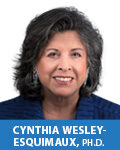
Cynthia Wesley-Esquimaux, Ph.D. served as Vice Provost for Indigenous Initiatives at Lakehead University for three years. Effective September 2016 she was appointed as the 1st Indigenous Chair for Truth and Reconciliation in Canada for Lakehead University and continues to develop…
→ Read more

Lyndon J Linklater is a traditional knowledge keeper and storyteller. He has an educational background in Indian Social Work, Indian Studies and some law.He is a citizen of the Thunderchild First Nation (Plains Cree) in Treaty 6 and has roots…
→ Read more
May 12, 2025
Day Two – May 13, 2025
Healing Through Spirit: Integrating Indigenous Healing Practices in Education and Mental Health
Presented by
Varleisha D. Lyons, Ph.D, OTD, OTR/L
8:30am - 4:00pm May 13, 2025
COURSE DESCRIPTION
This workshop offers educators a transformative opportunity to explore the intersection of trauma and spirituality within Indigenous communities, focusing on the impact of intergenerational trauma and how cultural wisdom can support resilience and well-being. By examining both traditional and contemporary healing practices, participants will deepen their understanding of how Indigenous spirituality, storytelling, and community-centered approaches can foster healing, restore balance, and strengthen the individual and collective health of students and families.
Indigenous communities have long faced the repercussions of colonization, forced assimilation, and systemic violence. These traumas have been passed down through generations, affecting the mental, emotional, and social well-being of individuals, families, and communities. Yet, alongside these challenges, Indigenous cultures possess profound spiritual traditions and healing practices that have endured. These practices remain a vital source of identity, resilience, and recovery, offering pathways to healing for those impacted by trauma.
This workshop is designed to empower educators and other professionals working in or with Indigenous communities. Participants will learn culturally grounded approaches to support healing in educational settings, incorporating Indigenous spiritual traditions, cultural practices, and storytelling to enhance student well-being and academic success. The workshop will also provide practical tools for integrating these healing methods into classroom teaching, school activities, and community-based programs.
Through engaging hands-on activities and thoughtful discussion, participants will gain the knowledge and skills to create healing environments that acknowledge and address the wounds of the past while fostering hope, empowerment, and community revitalization.
Show more
LEARNING OBJECTIVES
- Understand the Impact of Intergenerational Trauma:Explore the historical and systemic factors that contribute to trauma in Indigenous communities and how these experiences continue to influence the well-being of students and their families.
- Spirituality as a Path to Healing:Examine the role of Indigenous spiritual traditions, ceremonies, and cultural practices in promoting resilience and mental health within educational and community settings.
- Integrating Cultural Practices into Education and Mental Health:Learn how to incorporate Indigenous wisdom, spirituality, and trauma.
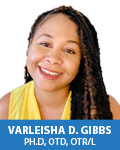
Varleisha D. Lyons Ph.D, OTD, OTR/L is a renowned occupational therapist, author, and speaker who is deeply passionate about promoting culturally intelligent and spiritually centered mental health care. As a woman of African American and Native American heritage, with ancestral ties…
→ Read more
More information: www.drvgibbs.com
8:30am - 4:00pm May 13, 2025
COURSE DESCRIPTION
Morning
Culturally Affirming and Strength-Based Narratives to Promote Healing
Indigenous worldviews are deeply rooted in unique cultural traditions, teachings, and spiritual practices that reflect a holistic and strength-based understanding of the self and community. These worldviews offer invaluable insights that can support the development and healing of Indigenous children, youth, families, and communities across the lifespan. The emphasis on relationality, interconnectedness, and respect for all living beings forms the foundation of a culturally affirming approach to care.
In this 3-hour morning session, participants will explore how culturally distinct Indigenous narratives can be integrated into healing practices, development strategies, and social service delivery. Drawing on Indigenous ways of knowing and being, participants will gain practical tools to apply culturally grounded practices that promote holistic well-being, decolonization, and healing. This session will offer a space to reflect on the ways in which practitioners can walk alongside Indigenous peoples in their roles, while honoring their inherent strengths and wisdom.
Afternoon
Gathering Our Medicine: Strengthening and Healing the Kinship Circle
The devastating impacts of intergenerational trauma resulting from colonization, residential schools, and forced assimilation have created long-lasting scars in Indigenous families and communities. These traumas have disrupted the traditional kinship structures and ways of being that once supported health, connection, and well-being. Mainstream, Western approaches to trauma treatment have often proven inadequate for Indigenous peoples, failing to address the complex, community-based nature of healing.
In the afternoon session, Denise Findlay will introduce Gathering Our Medicine, a cross-cultural model designed to restore dignity and balance to the role of caring for one another in Indigenous communities. This innovative approach emphasizes the restoration of kinship ties and cultural practices as central to healing from intergenerational trauma. Drawing from attachment theory, developmental science, and the science of emotion, Gathering Our Medicine provides a framework for healing that is deeply rooted in community, culture, and the relational bonds that naturally emerge within kinship circles.
During this session, participants will:
- Explore the Gathering Our Medicine Approach: Learn how this cross-cultural model provides a restorative framework for helping families and communities heal together.
- Restoring Dignity to the Care Role: Understand how restoring dignity to the act of caring for one another—across generations—can be a direct pathway to collective healing and resilience.
- The Power of Cultural Rituals: Discuss how Indigenous cultural rituals, rites of passage, and traditional ceremonies play a key role in healing by providing the context in which emotional, spiritual, and relational healing unfolds naturally and organically.
Show more
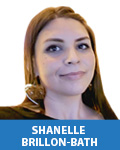
Shanelle Brillon-Bath is a nehiyaw iskwew (Cree woman) of mixed ancestry from Treaty 6 & 8 Territory, and also English and Norwegian settler ancestors. She is a proud member of Wapsewsipi, Swan River First Nation in Kinuso, Alberta. Her late…
→ Read more
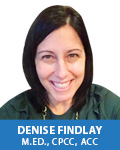
Tselkxáliya (Denise Findlay) is a Sḵwx̱wú7mesh scholar practitioner from the village of Xwemélch’stn and a PhD candidate in the Faculty of Education at Simon Fraser University. Denise is a published academic author whose background is in Philosophy of Educational Theory…
→ Read more
More information: WWW.NEUFELDINSTITUTE.ORG/PERSON/DENISE-FINDLAY
Day Three – May 14, 2025
De-Colonizing Services & Programs in Education & Mental Health: Holistic & Strength-Based Approaches to Better Serve Indigenous and Non-Indigenous Children & Youth
Presented by
Suzanne Methot, BA., B.Ed.
8:30am - 4:00pm May 14, 2025
COURSE DESCRIPTION
This workshop will explore the power of narrative-based approaches in addressing mind, body, spirit and emotion to empower children and youth to make meaning of their experiences, transform their self-concept, and rebuild relationships with others and the world around them. Participants will learn how to use storytelling and other motivational techniques to guide healing and growth. We will also explore ways to decolonize your work in classrooms, counseling, social work, or any interactions with children and youth by adopting holistic, strengths-based methods, and discuss ethical considerations for working in cross-cultural and community contexts.
Special attention will be given to the intersections of complex PTSD, developmental trauma, and colonialism, including the impact of intergenerational trauma on memory and well-being. Indigenous frameworks for understanding health, wellness, and healing will also be integrated into the conversation.
By the end of the session, participants will leave with practical tools, frameworks, and methodologies for addressing intergenerational trauma and complex PTSD, and for providing healing-informed support to individuals, families, and communities.
Show more
LEARNING OBJECTIVES
- Understand Narrative-Based Healing Approaches
- Recognize the role of storytelling in addressing mind, body, spirit, and emotion to help children and youth make meaning of their experiences.
- Explore how narratives can transform self-concept and relationships.
- Apply Motivational Techniques
- Learn how to use storytelling and other motivational methods to guide healing and growth in children and youth.
- Adopt Decolonizing Practices
- Identify strategies to decolonize interactions with children and youth in classrooms, counseling, and social work.
- Incorporate holistic, strengths-based methods in cross-cultural and community contexts.
- Address Complex Trauma and Colonialism
- Examine the intersections of complex PTSD, developmental trauma, and colonialism.
- Explore the impact of intergenerational trauma on memory and well-being.
- Integrate Indigenous Frameworks
- Learn Indigenous perspectives on health, wellness, and healing as part of trauma-informed care.
- Implement Healing-Informed Practices
- Develop practical tools, frameworks, and methodologies to support individuals, families, and communities impacted by trauma.
- Apply ethical considerations in cross-cultural and community-based settings.
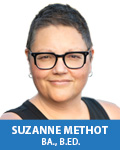
Suzanne Methot has 30 years of experience creating and applying culture-based and trauma-informed service frameworks. She was a classroom teacher in the Toronto District School Board, where she created a trauma-informed, arts-based classroom program that fostered identity, engagement, and student…
→ Read more
Registration & Fees
| Registration |
Super Early Bird Fee |
Early Bird Fee |
Regular Fee |
| ONE DAY ENROLLMENT |
--
|
|
|
| Individual 1 Day Enrollment |
$299.00 |
$319.00 |
$339.00 |
| 1 Day Group 3-7 |
$249.00 |
$269.00 |
$289.00 |
| 1 Day Group 8-14 |
$224.00 |
$244.00 |
$264.00 |
| 1 Day Group 15+ |
$199.00 |
$219.00 |
$239.00 |
| 1 Day Full-Time Student |
$199.00 |
$219.00 |
$239.00 |
|
--
|
|
|
| TWO DAY ENROLLMENT |
--
|
|
|
| Individual 2 Day Enrollment |
$539.00 |
$559.00 |
$579.00 |
| 2 Day Group 3-7 |
$489.00 |
$509.00 |
$529.00 |
| 2 Day Group 8-14 |
$464.00 |
$484.00 |
$504.00 |
| 2 Day Group 15+ |
$439.00 |
$459.00 |
$479.00 |
| 2 Day Full-Time Student |
$439.00 |
$459.00 |
$479.00 |
|
--
|
|
|
| THREE DAY ENROLLMENT |
--
|
|
|
| Individual 3 Day Enrollment |
$719.00 |
$739.00 |
$759.00 |
| 3 Day Group 3-7 |
$669.00 |
$689.00 |
$709.00 |
| 3 Day Group 8-14 |
$644.00 |
$664.00 |
$684.00 |
| 3 Day Group 15+ |
$619.00 |
$639.00 |
$659.00 |
| 3 Day Full-Time Student |
$619.00 |
$639.00 |
$659.00 |
All fees are per person and in Canadian Dollars ($CAD)
Fees do not include applicable taxes (5% GST).
Super early bird cutoff date: February 12, 2025
The super early bird date has passed. Early bird or regular rates apply.
Early bird cutoff date: April 12, 2025
The early bird date has passed. Regular rates apply.
Register Online Register your Group
Downloads
All brochures and forms are provided in .PDF format.
If you are unable to open our files, we recommend downloading Adobe Reader for free.
Brochure (.PDF)
Recommended Accommodation
Park Town Hotel
924 Spadina Crescent E
Saskatoon, SK S7K 3H5
 Full map & directions
Full map & directions
Our rates:
Please use the following when booking a room:
Group Name: Jack Hirose Workshop
Group Code: 2505JHW
Group Id: 468360
King City View: $169.00
Two Queen Riverview: $179.00
Executive One King: $189.00
Executive Two Queen: $189.00
*Plus tax and fees
Concessions:
- 88 breakfast vouchers to use in our Four Season Restaurant toward a breakfast item or menu
- 10% off dinner in our Four Seasons Restaurant
- Complimentary wifi
- Complimentary surface parking
- Complimentary Shuttle Service, Mon.-Fri. 7:30am to 9pm, (pre-booking required).
Continuing Education Credits
This workshop has been formally approved by the following associations:
† The Alberta College of Social Workers (ACSW) and the Newfoundland and Labrador Association of Social Workers (NLASW) accept CPA-approved CEUs.
* Participants will receive a certificate of completion after every workshop. Workshops are pre-approved for 5.5 or 6 credits per day unless otherwise specified.
Please check back closer to the conference date for more information.
Related Events
There are no related events at this time.











